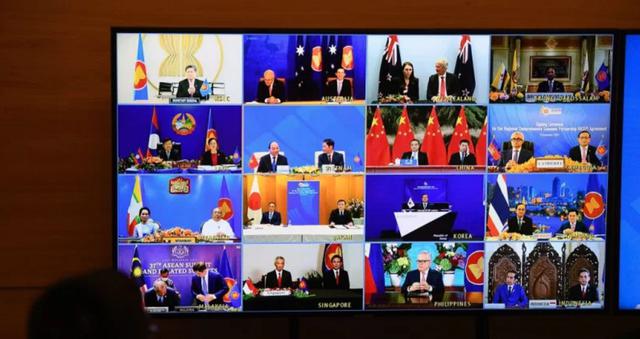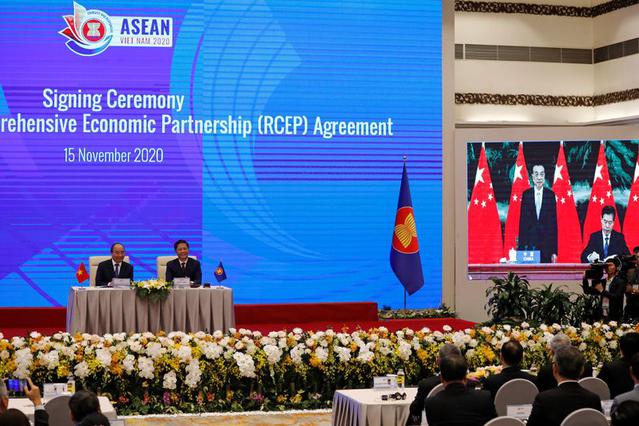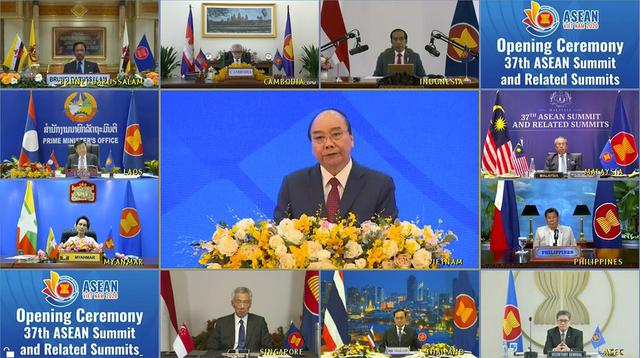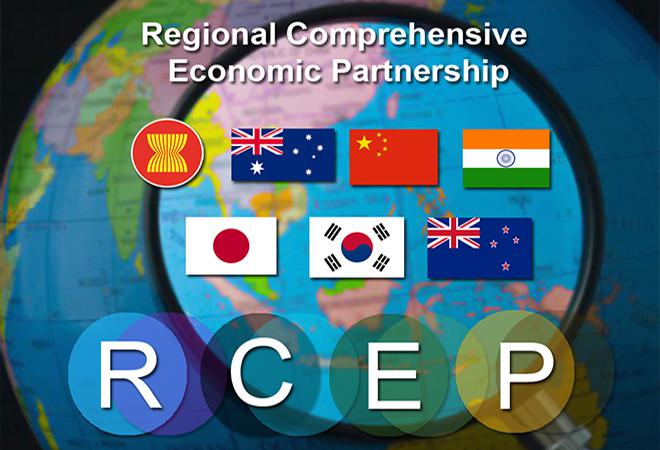By APD writer Alice
The Regional Comprehensive Economic Partnership (RCEP), one of the largest free trade agreements in the world, was officially signed on November 15 after 8 years of negotiation.
The virtual signing of the pact by ministers of 15 countries involved took place following the conclusion of the 4th RCEP Summit, as part of the 37th ASEAN Summit and Related Summits hosted by Vietnam as ASEAN 2020 Chair.
RCEP includes 10 ASEAN countries along with Australia, China, Japan, New Zealand and South Korea. It shows Beijing’s growing economic power in ASEAN, in the context of Washington's uncertain relations with the region. China actively promoted the agreement, seeing it as a counterbalance to US influence in the region.
The deal covers a market of 2.2 billion peoplewith a combined size of 26.2 trillion USD or 30 percent of the world’s GDP, larger than any previous regional FTA, and could help reinforce China's image as the dominant economic power in the region. Chinese Premier Li Keqiang called the pact "a victory of multilateralism and free trade".

With commitments to opening markets for goods, services and investment, and the harmonisation of the rules of product origin between the countries, as well as trade facilitation measures, the agreement will create opportunities to develop new supply chains in the region.
RCEP was inked in the context that the US withdrew from many trade agreements that play a role in reshaping global relations. Nearly four years ago, President Donald Trump pulled this country out of the Trans-Pacific Partnership (TPP) (now Comprehensive and Progressive Agreement for Trans-Pacific Partnership - CPTPP). This is a broader agreement than RCEP, which is seen as the US response to China's growing influence in the Asia-Pacific. President-elect Joe Biden does not promise reconsideration of the CPTPP.
According to some trade experts, the signing of the new deal shows that the rest of the world won't wait for the US. The European Union has also actively pursued trade talks. As other countries sign new agreements, US exporters may gradually lose their foothold.
“While the United States is currently focusing on domestic concerns, including the need to fight the pandemic and rebuild its economy and infrastructure, I’m not sure the rest of the world is going to wait until America gets its house in order,” said Jennifer Hillman, a senior fellow for trade and international political economy at the Council on Foreign Relations.

The US Chamber of Commerce is worried that the US is being left behind after the 15 Asia-Pacific countries signed the world's largest free trade agreement, cementing China’s dominant role in regional trade.
It welcomed the trade liberalization benefits of RCEP, saying that US exporters, workers and farmers need greater access to Asian markets.
Myron Brilliant, executive vice president of the chamber, said that the administration of President Donald Trump turned to confront trade practices by China, which limited opportunities for US exporters in other parts of Asia.
The United States should make a forward-looking strategic effort to maintain its firm economic presence in the region. Otherwise, the US faces a risk of standing outside and seeing it absent in the world's main growth engines, he said.

He noted US exports to the Asia-Pacific market have steadily increased in recent decades, but the share of US companies has declined. He emphasized the importance of the Asia-Pacific market, citing forecasts showing an average growth rate of over 5% by 2021 and a rapid rise in the middle class.
He Weiwen, a prominent Chinese trade policy expert, said the deal represents a big step forward. Its size will certainly contribute to world free trade.
According to Mary Lovely, a senior fellow at the Peterson Institute for International Economics in Washington, RCEP's lower trade barriers could encourage global companies to continue operating in Asia instead of moving to North America. It is even more beneficial for firms trying to avoid US tariffs on made-in-China goods.
The prospect of China establishing closer economic ties with its neighbors has worried Washington. It is unclear how the United States will respond to the new trade pact. Biden has not said whether he would rejoin the CPTPP once he enters office in January next year. But analysts say it is unlikely to be a high priority.
He has said he would wait to negotiate any new trade deals. He wants to focus his energy on the pandemic, the economic recovery and investing in American manufacturing and technology.
(ASIA PACIFIC DAILY)
